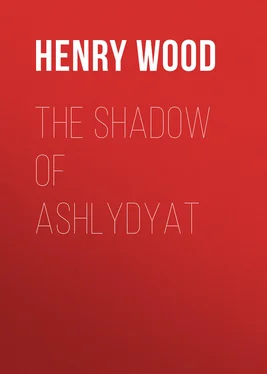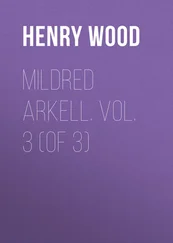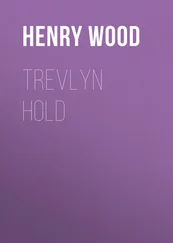Henry Wood - The Shadow of Ashlydyat
Здесь есть возможность читать онлайн «Henry Wood - The Shadow of Ashlydyat» — ознакомительный отрывок электронной книги совершенно бесплатно, а после прочтения отрывка купить полную версию. В некоторых случаях можно слушать аудио, скачать через торрент в формате fb2 и присутствует краткое содержание. Жанр: foreign_prose, literature_19, foreign_antique, на английском языке. Описание произведения, (предисловие) а так же отзывы посетителей доступны на портале библиотеки ЛибКат.
- Название:The Shadow of Ashlydyat
- Автор:
- Жанр:
- Год:неизвестен
- ISBN:нет данных
- Рейтинг книги:4 / 5. Голосов: 1
-
Избранное:Добавить в избранное
- Отзывы:
-
Ваша оценка:
- 80
- 1
- 2
- 3
- 4
- 5
The Shadow of Ashlydyat: краткое содержание, описание и аннотация
Предлагаем к чтению аннотацию, описание, краткое содержание или предисловие (зависит от того, что написал сам автор книги «The Shadow of Ashlydyat»). Если вы не нашли необходимую информацию о книге — напишите в комментариях, мы постараемся отыскать её.
The Shadow of Ashlydyat — читать онлайн ознакомительный отрывок
Ниже представлен текст книги, разбитый по страницам. Система сохранения места последней прочитанной страницы, позволяет с удобством читать онлайн бесплатно книгу «The Shadow of Ashlydyat», без необходимости каждый раз заново искать на чём Вы остановились. Поставьте закладку, и сможете в любой момент перейти на страницу, на которой закончили чтение.
Интервал:
Закладка:
“The servants tell a tale—these old Ashlydyat retainers who remain in the house—that this strangely-sounding wind is connected with the Ashlydyat superstition, and foretells ill to the Godolphins.”
Thomas Godolphin smiled. “I am sure you do not give ear to anything so foolish, Mrs. Verrall.”
“No, that I do not,” she answered. “It would take a great deal to imbue me with faith in the supernatural. Ghosts! Shadows! As if any one with common sense could believe in such impossibilities! They tell another tale about here, do they not? That a shadow of some sort may occasionally be seen in the moonbeams in front of the archway, on the Dark Plain; a shadow cast by no earthly substance. Charlotte once declared she saw it. I only laughed at her!”
His lips parted as he listened, and he lightly echoed the laugh said to have been given by Charlotte. Considering what his eyes had just seen, the laugh must have been a very conscious one.
“When do you expect your brother home?” asked Mrs. Verrall. “He seems to be making a long stay at Broomhead.”
“George is not at Broomhead,” replied Thomas Godolphin. “He left it three or four days ago. He has joined a party of friends in the Highlands. I do not suppose he will return here much before Christmas.”
Cecil appeared. They wished Mrs. Verrall good night, and a speedy cure to her burns; and departed. Thomas took the open roadway this time, which did not bring them near to the ash-trees or the Dark Plain.
CHAPTER XI.
A TELEGRAPHIC DESPATCH
“Cecil,” asked Thomas Godolphin, as they walked along, “how came you to go alone to Ashlydyat, in this unceremonious manner?”
“There was no harm in it,” answered Cecil, who possessed a spice of self-will. “Mrs. Verrall said she was lonely, and it would be a charity if I or Bessy would go home with her. Bessy could not: she was engaged at the Rectory. Where was the harm?”
“My dear, had there been ‘harm,’ I am sure you would not have wished to go. There was none. Only, I do not care that you should become very intimate with the Verralls. A little visiting on either side cannot be avoided: but let it end there.”
“Thomas! you are just like Janet!” impulsively spoke Cecil. “She does not like the Verralls.”
“Neither do I. I do not like him. I do not like Charlotte Pain–”
“Janet again!” struck in Cecil. “She and you must be constituted precisely alike, for you are sure to take up the same likes and dislikes. She would not willingly let me go to-day; only she could not refuse without downright rudeness.”
“I like Mrs. Verrall the best of them, I was going to say,” he continued. “Do not become too intimate with them, Cecil.”
“But you know nothing against Mr. Verrall?”
“Nothing whatever. Except that I cannot make him out.”
“How do you mean—‘make him out?’”
“Well, Cecil, it may be difficult to define my meaning. Verrall is so impassive; so utterly silent with regard to himself. Who is he? Where did he come from? Did he drop from the moon? Where has he previously lived? What are his family? Where does his property lie?—in the funds, or in land, or in securities, or what? Most men, even though they do come as strangers into a neighbourhood, supply indications of some of these things, either accidentally or purposely.”
“They have lived in London,” said Cecil.
“London is a wide term,” answered Thomas Godolphin.
“And I’m sure they have plenty of money.”
“There’s where the chief puzzle is. When people possess so much money as Verrall appears to do, they generally make no secret of whence it is derived. Understand, my dear, I cast no suspicion on him in any way: I only say that we know nothing of him: or of the ladies either–”
“They are very charming ladies,” interrupted Cecil again. “Especially Mrs. Verrall.”
“Beyond the fact that they are very charming ladies,” acquiesced Thomas in a tone that made Cecil think he was laughing at her: “you should let me finish, my dear. But I would prefer that they were rather more open, as to themselves, before they became the too-intimate friends of Miss Cecilia Godolphin.”
Cecil dropped the subject. She did not always agree with what she called Thomas’s prejudices. “How quaint that old doctor of ours is!” she exclaimed. “When he had looked at Mrs. Verrall’s arm, he made a great parade of getting out his spectacles, and putting them on, and looking again. ‘What d’ye call it—a burn?’ he asked her. ‘It is a burn, is it not?’ she answered, looking at him. ‘No,’ said he, ‘it’s nothing but a scorch.’ It made her laugh so. I think she was pleased to have escaped with so little damage.”
“That is just like Snow,” said Thomas Godolphin.
Arrived at home, Miss Godolphin was in the same place, knitting still. It was turned half-past nine. Too late for Thomas to pay his visit to Lady Sarah’s. “Janet, I fear you have waited tea for us!” said Cecil.
“To be sure, child. I expected you home to tea.”
Cecil explained why they did not come, relating the accident to Mrs. Verrall. “Eh! but it’s like the young!” said Janet, lifting her hands. “Careless! careless! She might have been burned to death.”
“What a loud ring!” exclaimed Cecil, as the hall-bell, pealed with no gentle hand, echoed and re-echoed through the house. “If it is Bessy come home, she thinks she will let us know who’s there.”
It was not Bessy. A servant entered the room with a telegraphic despatch. “The man is waiting, sir,” he said, holding out the paper for signature to his master.
Thomas Godolphin affixed his signature, and took up the despatch. It came from Scotland. Janet laid her hand upon it ere it was open: her face looked ghastly pale. “A moment of preparation!” she said. “Thomas, it may have brought us tidings that we have no longer a father.”
“Nay, Janet, do not anticipate evil,” he answered, though his memory flew unaccountably to that ugly Shadow, and to what he had deemed would be Janet’s conclusions respecting it. “It may not be ill news at all.”
He glanced his eye rapidly and privately over it, while Cecil came and stood near him with a stifled sob. Then he held it out to Janet, reading it aloud at the same time.
“‘Lady Godolphin to Thomas Godolphin, Esquire.
“‘Come at once to Broomhead. Sir George wishes it. Take the first train.’”
“He is not dead, at any rate, Janet,” said Thomas quietly. “Thank Heaven.”
Janet, her extreme fears relieved, took refuge in displeasure. “What does Lady Godolphin mean, by sending so vague a message as that?” she uttered. “Is Sir George worse? Is he ill? Is he in danger? Or has the summons no reference at all to his state of health?”
Thomas had taken it into his hand again, and was studying the words: as we are all apt to do in uncertainty. He could make no more out of them.
“Lady Godolphin should have been more explicit,” he resumed.
“Lady Godolphin has no right thus to play upon our fears, our suspense,” said Janet. “Thomas, I have a great mind to start this very night for Scotland.”
“As you please, of course, Janet. It is a long and fatiguing journey for a winter’s night.”
“And I object to being a guest at Broomhead, unless driven to it, you might add,” rejoined Janet. “But our father may be dying.”
“I should think not, Janet. Lady Godolphin would certainly have said so. Margery, too, would have taken care that those tidings should be sent to us.”
The suggestion reassured Miss Godolphin. She had not thought of it. Margery, devoted to the interests of Sir George and his children (somewhat in contravention to the interests of my lady), would undoubtedly have apprised them were Sir George in danger. “What shall you do?” inquired Janet of her brother.
Читать дальшеИнтервал:
Закладка:
Похожие книги на «The Shadow of Ashlydyat»
Представляем Вашему вниманию похожие книги на «The Shadow of Ashlydyat» списком для выбора. Мы отобрали схожую по названию и смыслу литературу в надежде предоставить читателям больше вариантов отыскать новые, интересные, ещё непрочитанные произведения.
Обсуждение, отзывы о книге «The Shadow of Ashlydyat» и просто собственные мнения читателей. Оставьте ваши комментарии, напишите, что Вы думаете о произведении, его смысле или главных героях. Укажите что конкретно понравилось, а что нет, и почему Вы так считаете.












